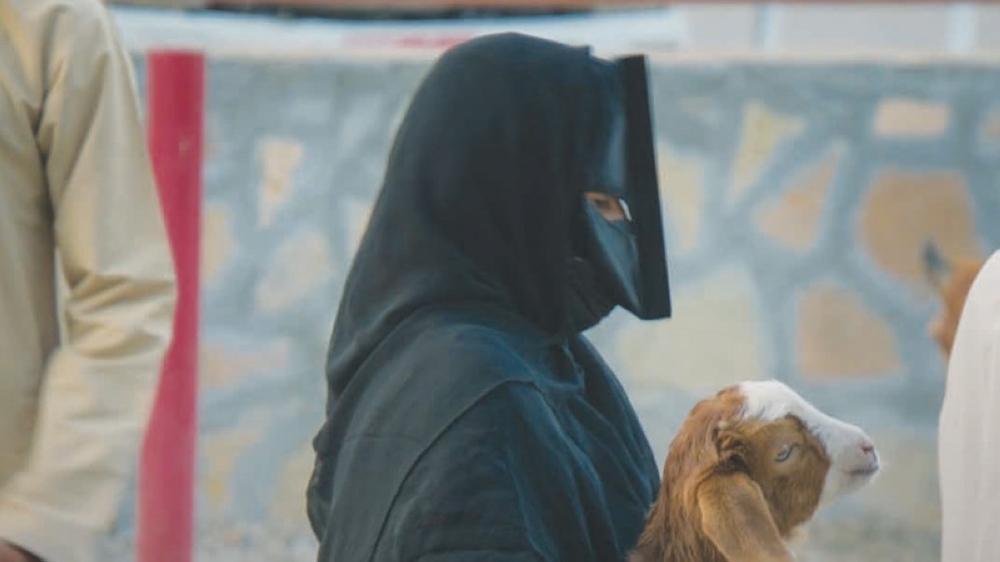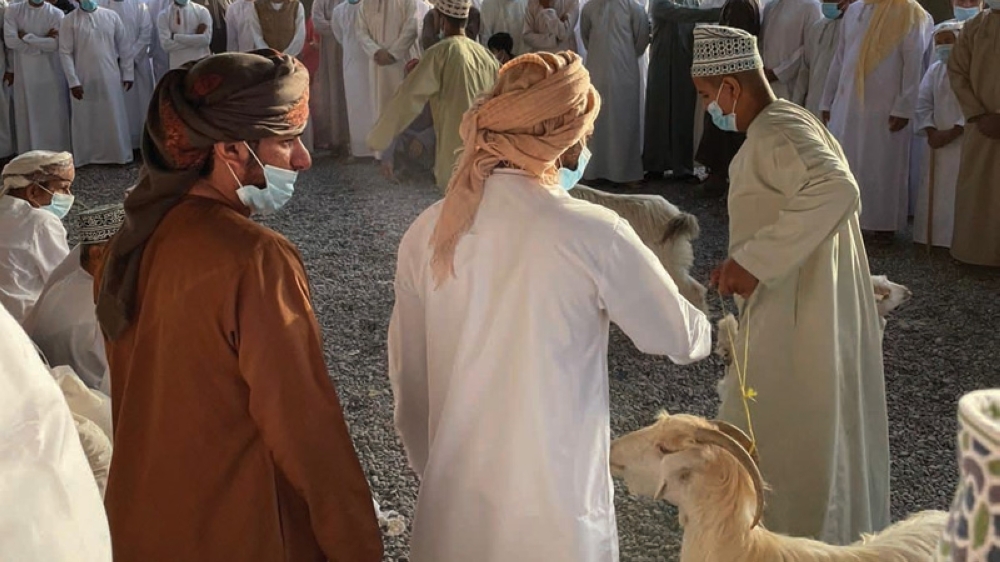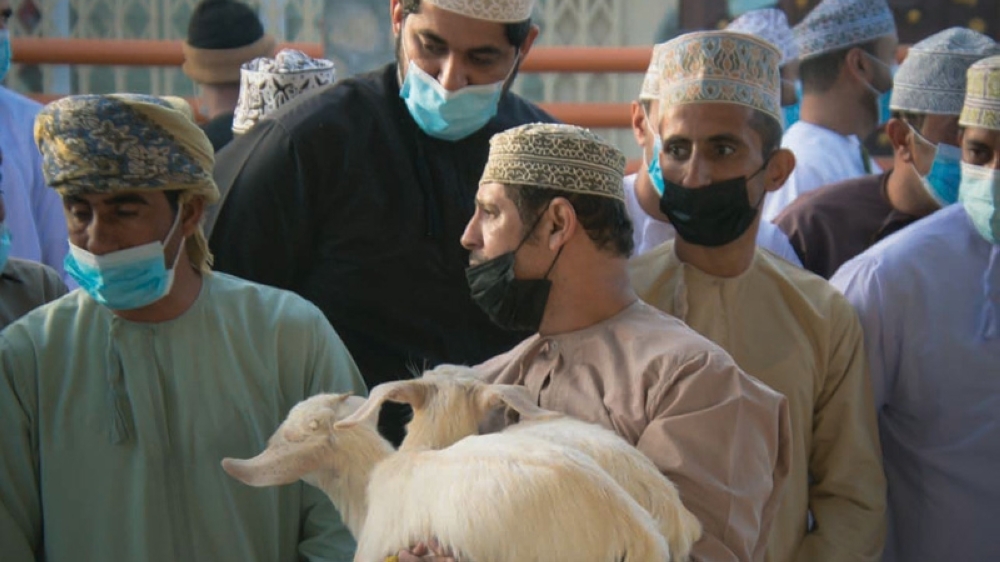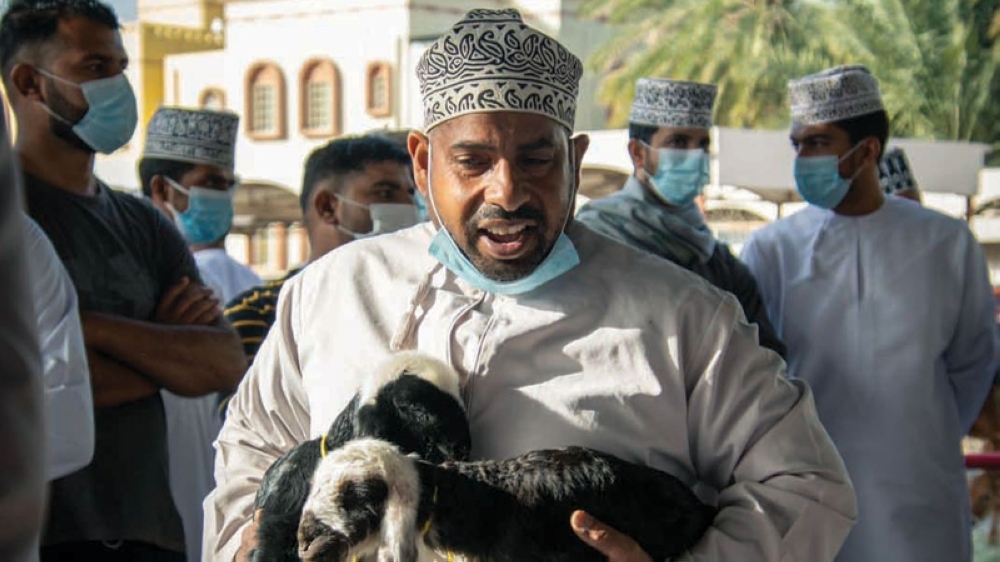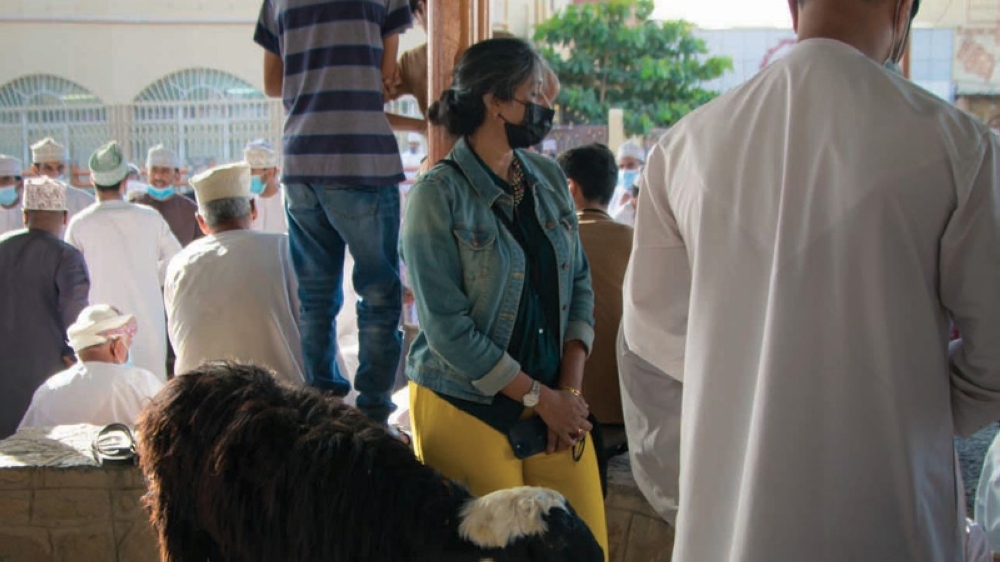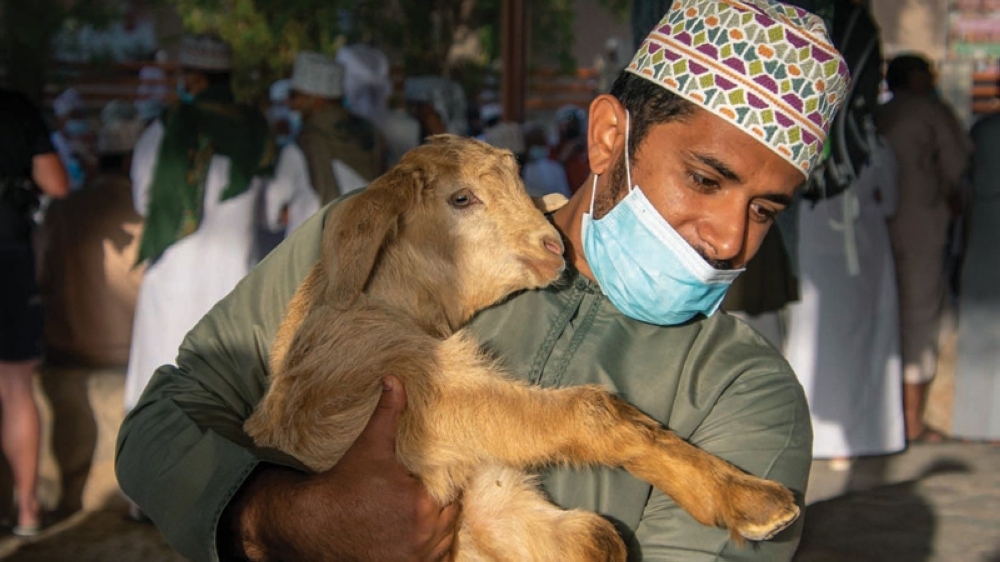

By Rumpa Mitra
Insta : rumpa_mitra
Photos by Abhilash Pillai
Insta : theimagegrapher
The Nizwa Goat Market is one of the famous traditional livestock markets in Oman and it’s definitely an experience that should be added to everyone’s list.
Nizwa is very famous for its fort, souq, cultural heritage sites and mountains being one of Oman’s oldest cities. It was also once the centre of trade, religion, education and art. I have been to Nizwa plenty of times and visited most of the touristy destinations but the goat market experience was something I haven’t done before.
Driving at four in the morning from Muscat to Nizwa accompanied by a photographer friend didn’t feel like an inconvenience for me because as an expat, being able to learn of the country’s history, tradition and cultural events is something we should all need to do to understand the essence of the Sultanate of Oman.
The departure from Muscat at such an early hour is necessary if you want to witness one of Oman’s most beautiful chaotic yet mesmerising scenes. The goat market auction usually starts very early that by 7 am, the auctions would have started already.
Visiting this place recently, we reached the souq 15 minutes before seven in the morning. It was crowded and the parking was a headache.
Villagers from surrounding places and even from Al Jabal Al Akhdhar, Ibri and Bahla come to this place to trade their livestock which includes cows and goats.
From the parking lot, you can already feel the excitement in the air mixed with pure business with nearly everyone trying to come out with some great deal. Because of the magnitude of the market, it has also become an attraction for tourists and it’s easy to spot a lot of them also going around and experiencing the scene.
While the environment was business as usual, I find it comforting that the Omanis never forget their manners that when we got lost, an elderly gentleman pointed us in the right direction when we missed the gate leading to the auction area.
By seven in the morning, the place where the auction takes place was already fully packed. Circular in shape, the patrons stand by the side of these rails as the livestock are paraded inside the circle.
To be honest, it was hard to determine how business can be conducted in such a busy place where everyone seemingly asked everyone a question. It didn’t take long to realise though that there was a system in the shouting and at the end of each round, prices and bids are placed for the different items of the day. To bid, you have to shout.
A young Omani explained what was happening to me. He said that the prices per livestock vary on different factors and prices can range from RO 15 to 100. People bid according to what they need and the owners raise their prices depending on quality.
As an observer, you would see the aggressiveness of the process the seriousness of the bidders showing on their faces. This action-packed scene is what drives other nationalities to events like this.
For many of the tourists, it was evident that they enjoy the experience. Typical of any travellers, the cameras are pointed everywhere trying to capture the unrehearsed moment that perhaps is not available anywhere else. In all the actions, what took my interest was a father and son who were trying to participate in the auction. After a series of bids, the son was happy to go home cuddling a cute little goat in his arms. I realised that events like this not only pass the tradition but also served as teachable moments for those involved.
The goat market, one should realise, is not only for business purposes. It is also a place where friends catch up. While the market itself is busy, you would notice a few of the gentlemen sharing coffee somewhere by the side of their cars laughing at some inside jokes private to the participants. It was easy to see why many of the Omanis continue to come to Nizwa souq as the environment gives out a celebration-vibe. It is also notable that Omani women are also just as present in the auction as their male counterparts and the shared market experience was truly a unique one with the bottom line of going home with what you need.
By around 9 am, the goat auction would already have finished. It is customary that after witnessing the event, travellers take a stroll inside the Nizwa souq haggling for vegetables or spices, even pottery that is abundant in the area.
For us, the experience continued with a walk inside the village located behind the fort and after some time, we rewarded ourselves with a cup of coffee at what is perhaps one of Oman’s most charming coffee shops — Anat.
Of the many visits I have had in Nizwa, the goat market and souq experience were memorable, something that I will encourage everyone to try. It allows you to be part of a cultural phenomenon and makes you understand a little bit more of what is Oman’s culture is all about even by just observing.
If you don’t want the long drive from Muscat to Nizwa at the early hours, you can opt to stay in one of the many traditional inns located in the area. In our last visit, the Al Bustan Heritage Inn definitely looked promising as a place to stay.
Oman Observer is now on the WhatsApp channel. Click here

